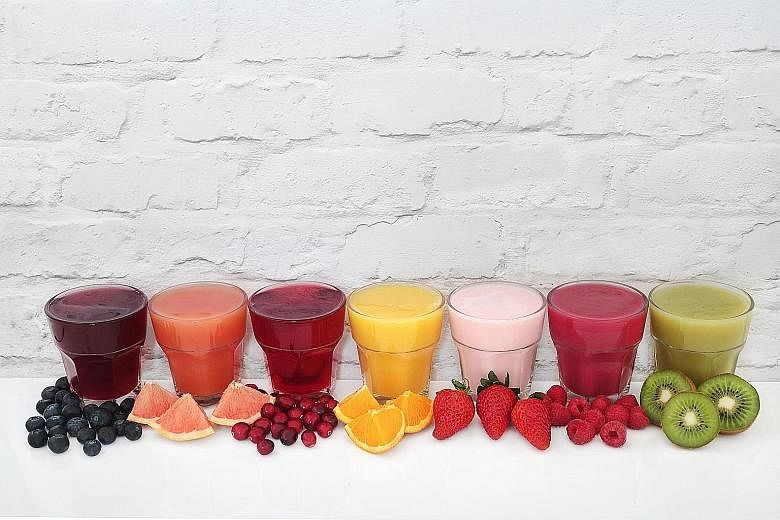NEW YORK • The United States' top paediatricians are advising parents to stop giving fruit juice to children in the first year of life, saying the drink is not as healthful as many parents think.
Until now, the American Academy of Paediatrics had advised parents to avoid 100 per cent fruit juice for babies younger than six months.
But on Monday, the group toughened its stance, recommending that juice be banned entirely from a baby's diet during the first year.
The concern is that juice offers no nutritional benefits early in life, and can take the place of what babies really need: breast or formula milk and their protein, fat and minerals like calcium, the group said.
"I think this is a fantastic recommendation for infants, and it's long overdue," said Dr Elsie Taveras, chief of general paediatrics at MassGeneral Hospital for Children in Boston, who was not involved in the new report. "Parents feel their infants need fruit juices, but that's a misconception."
The recommendations may surprise parents who thought 100 per cent fruit juice was healthy for babies, or equivalent to fruit itself.
Dr Man Wai Ng, dentist-in-chief at Boston Children's Hospital, applauded the ban. "One hundred per cent fruit juice should be offered only on special occasions, especially for kids who are at high risk of tooth decay," she said.
A 110ml cup of apple juice has no fibre, and contains 60 calories and 13g of sugar. By comparison, a half cup of apple slices has 1.5g of fibre, 30 calories and 5.5g of sugar. The fibre in fruit also increases fullness.
The new report, published online in the Pediatrics journal, also advised restricting fruit juice to 110ml daily for one- to three-year-olds, and 170ml a day for four- to six-year-olds.
Dr Taveras said: "We have studies that show infants who drink more juice in that early life period are more likely to go on to drink soda and sugar-containing beverages."
Ms Stephanie Meyering, a spokesman for the Juice Products Association, a US trade group, said that while "juice is not necessary for children under age one", real fruit juice "is a nutritious complement to whole fruit in a balanced diet" for toddlers and older children.
Whole fruit typically has more fibre than fruit juice and is less likely to cause dental decay, said Dr Steven Abrams, a lead author of the new report.
Whole fruit is "less of a pure sugar intake", he said. "We want kids to learn how to eat fresh foods. If you assume fruit juice is equal to fruit, then you are not getting that message."
NYTIMES

